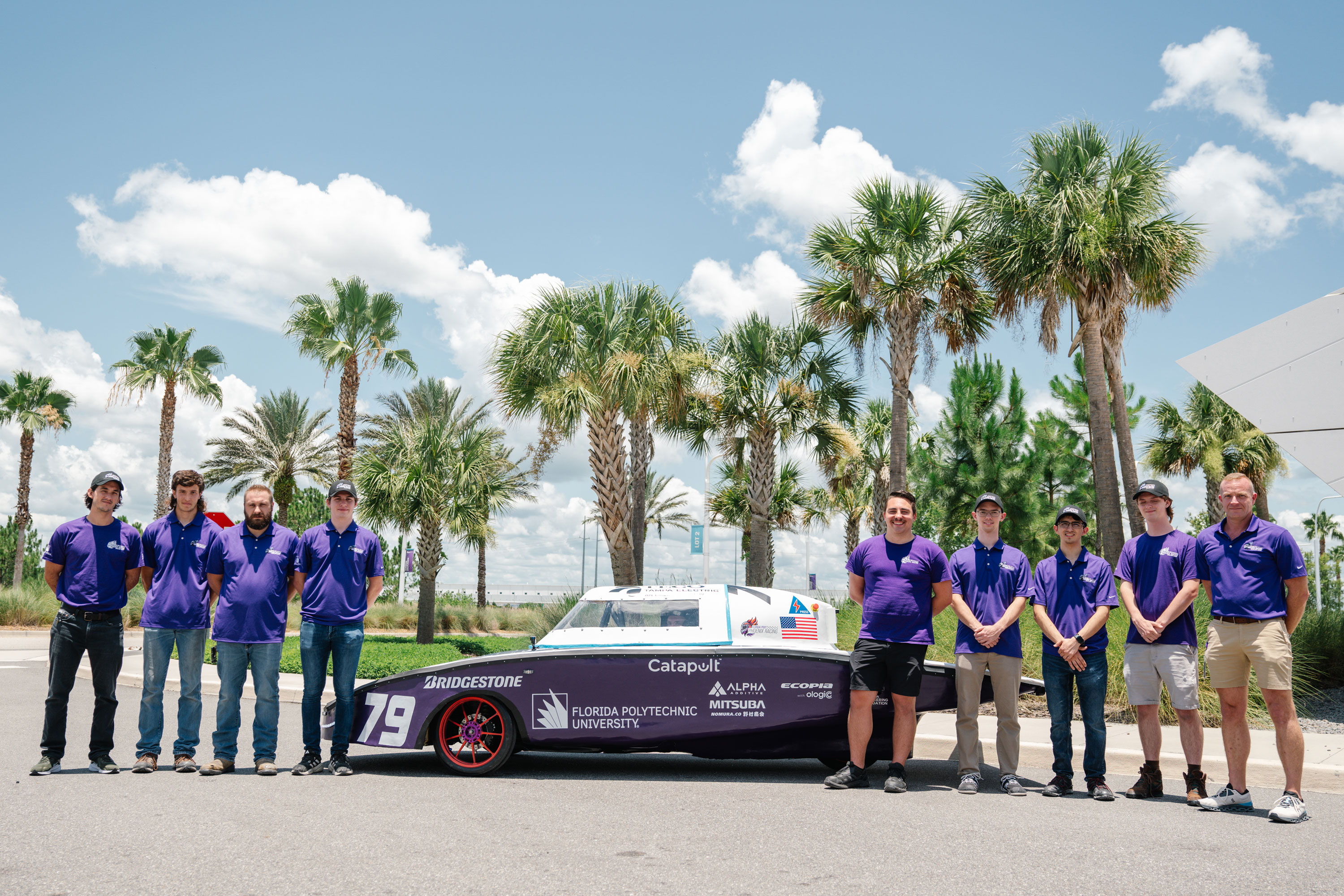
Phoenix Racing, Florida Polytechnic University’s competition solar racing team, will go up against top collegiate teams at the national Electrek Formula Sun Grand Prix in Bowling Green, Kentucky, on July 3-5.
Florida Polytechnic University’s Phoenix Racing is heading back to the national stage with renewed determination, advanced engineering and a brand-new solar-powered vehicle. On Thursday, July 3, the student-led team will compete in the Electrek Formula Sun Grand Prix – an elite collegiate endurance race – with plans to surpass its impressive seventh-place debut in 2024.
The race, held at the National Corvette Museum Motorsports Park in Bowling Green Kentucky, challenges teams to complete the most laps over three days. This year, Phoenix Racing will go head-to-head with leading institutions such as MIT, Northwestern, and Virginia Tech.
“Last year, we had never been to an event like this, and we had no idea what to expect,” said Spencer Blackwell ’25, Phoenix Racing’s president. “Our biggest strength going into the competition is that we understand the process now and we know what we have to do to be ready.”
Blackwell recently earned his bachelor’s degree in mechanical engineering from Florida Poly and will begin the University’s master’s program in the fall. He’s also one of three drivers of Spark MK2 Powered by TECO, a lighter, faster evolution of the team’s first car. TECO, the Tampa-based utility company, is the team’s title sponsor.
This year’s team delegation traveling to Kentucky includes more than 15 dedicated Florida Poly students and three faculty advisers who have worked tirelessly to build the solar car from scratch – refining every aspect of its design and performance.
“This year we’re paying much more attention to small details and trying to be as close to perfect as possible,” said Ethan Rose, a rising senior majoring in mechanical engineering.
Thanks in part to Catapult’s makerspace, the team gained access to advanced fabrication tools – such as a precision plasma cutter – and expert guidance to bring their vision to life. The result is a sleeker, more aerodynamic vehicle that is 60 pounds lighter than Spark MK1. The team said Spark MK2’s wheel hubs and high-end bearings have transformed its wheel performance. A test spin of the new wheels lasted nearly six minutes, compared to just 10 seconds last year.
“Everything is already better and prettier than last year’s car, and based on our data, we should be in the top five,” Rose said.
Looking beyond this year’s race, Phoenix Racing has its sights set on another great performance in 2026 to qualify for the biennial American Solar Challenge, a 1,500- to 2,000-mile cross-country endurance rally.
For more information, visit Phoenix Racing’s team website.
Contact:
Lydia Guzmán
Director of Communications
863-874-8557